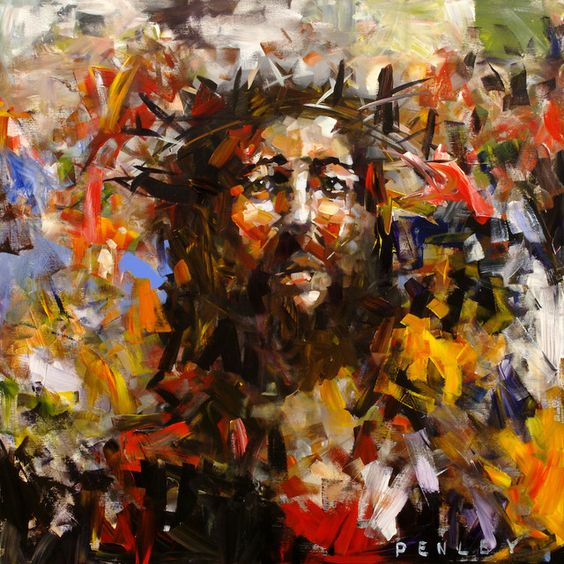
Friday
The Crucifixion. The World Turned Upside Down
Matthew 27:1-66; Mark 15:1-47; Luke 22:66-23:56; John 18:28-19:37
Jesus dying on the cross. The story is familiar and yet so foreign. It occurred more than 2,000 years ago and yet could very likely be happening today.
A faith-based community organizer, who prophetically preached, taught and acted so as to empower the people to rise up, to claim their inheritance, to live differently, caring for one another. This organizer, who disrupted the status quo, destabilized the power base of the elites, and gave voice to the powerless (the least of these), was turning the world upside down. The religious establishment of his nation, which was also the elite and leaders of his society couldn’t take the onslaught that his nonviolent organizing movement was. The imperial occupying foreign Roman forces could no longer tolerate what some saw as his revolutionary, subversive teaching on the true nature of greatness [the greatest among you must become like the youngest, and the leader like one who serves...] and the subject worthy of devotion (Give to God what is God’s…). His words and very presence threatened their power-base, leadership and the stabilizing structure of imperial society: fear.
His death, which we retell today on Good Friday, is in the same day (24 hour period, as the last meal he shares with his friends at which he teaches them again about greatness as service, as love as self-sacrificing, as community based in a connection to the Divine). Remember that in the Jewish worldview the day begins at sunset and ends at the next sunset. And so in one day Jesus goes from being at table, surrounded by loved friends and devoted disciples to dying alone, naked, in public before the polis of Jerusalem, jeered by enemies, antagonized by the stoic soldiers, observed by silent and terrified supporters. We say that he chose it, could have done something different, yet his teachings seem to say otherwise. This is the consequence of his teaching, his life, his authentic commitment to what he taught and who he organized. This price: his death in the most horrifically public shaming way, is the only thing that could unmask and reveal the bankruptcy of the Roman system based upon fear induced and reinforced by sadistic and shaming violence.
The prophetic Dorothy Day, an American Catholic who did tremendous social work and justice preaching with her life in the past century lived and wrote about this power of unmasking the powers, and the price that it costs, all in view of birthing the true empire-extinguishing power, healing justice and radical love of God in the world, through living as Jesus lived.
Love in action is harsh and dreadful when compared to love in dreams.
Patience, patience….which means suffering.
-Dorothy Day
Questions for Active Reflection:
- What strikes you in the story of the crucifixion of Jesus, the violent assassination of this nonviolent community organizer and preacher?
- How can we call today both Holy Friday and Good Friday? How can you?
- How does Jesus’ most radical obedience to his own teaching, giving his life to love his friends (us), shape your own patience, self-sacrificing love in action, and existential way of moving in the world and for the world?
- What questions does this story of the cross leave, or create, in you?